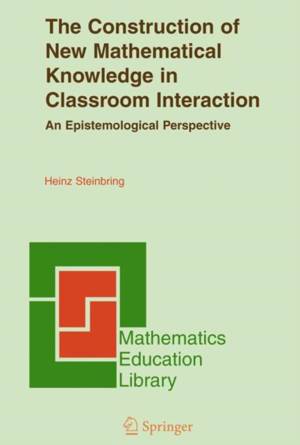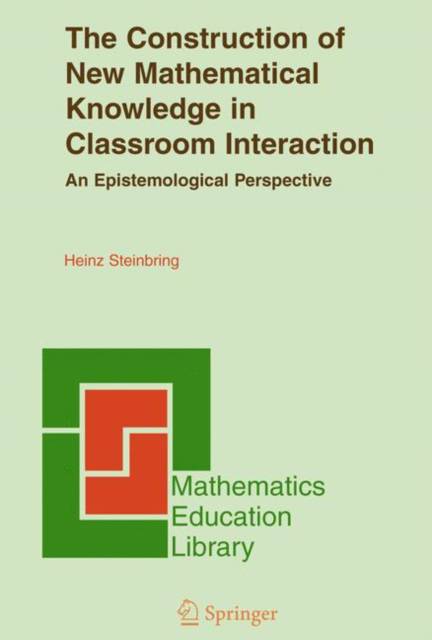
- Afhalen na 1 uur in een winkel met voorraad
- Gratis thuislevering in België vanaf € 30
- Ruim aanbod met 7 miljoen producten
- Afhalen na 1 uur in een winkel met voorraad
- Gratis thuislevering in België vanaf € 30
- Ruim aanbod met 7 miljoen producten
Zoeken
The Construction of New Mathematical Knowledge in Classroom Interaction
An Epistemological Perspective
Heinz Steinbring
€ 153,95
+ 307 punten
Omschrijving
Mathematics is generally considered as the only science where knowledge is uni- form, universal, and free from contradictions. "Mathematics is a social product - a 'net of norms', as Wittgenstein writes. In contrast to other institutions - traffic rules, legal systems or table manners -, which are often internally contradictory and are hardly ever unrestrictedly accepted, mathematics is distinguished by coherence and consensus. Although mathematics is presumably the discipline, which is the most differentiated internally, the corpus of mathematical knowledge constitutes a coher- ent whole. The consistency of mathematics cannot be proved, yet, so far, no contra- dictions were found that would question the uniformity of mathematics" (Heintz, 2000, p. 11). The coherence of mathematical knowledge is closely related to the kind of pro- fessional communication that research mathematicians hold about mathematical knowledge. In an extensive study, Bettina Heintz (Heintz 2000) proposed that the historical development of formal mathematical proof was, in fact, a means of estab- lishing a communicable "code of conduct" which helped mathematicians make themselves understood in relation to the truth of mathematical statements in a co- ordinated and unequivocal way.
Specificaties
Betrokkenen
- Auteur(s):
- Uitgeverij:
Inhoud
- Aantal bladzijden:
- 236
- Taal:
- Engels
- Reeks:
- Reeksnummer:
- nr. 38
Eigenschappen
- Productcode (EAN):
- 9780387242514
- Verschijningsdatum:
- 22/03/2005
- Uitvoering:
- Hardcover
- Formaat:
- Genaaid
- Afmetingen:
- 156 mm x 234 mm
- Gewicht:
- 530 g

Alleen bij Standaard Boekhandel
+ 307 punten op je klantenkaart van Standaard Boekhandel
Beoordelingen
We publiceren alleen reviews die voldoen aan de voorwaarden voor reviews. Bekijk onze voorwaarden voor reviews.











